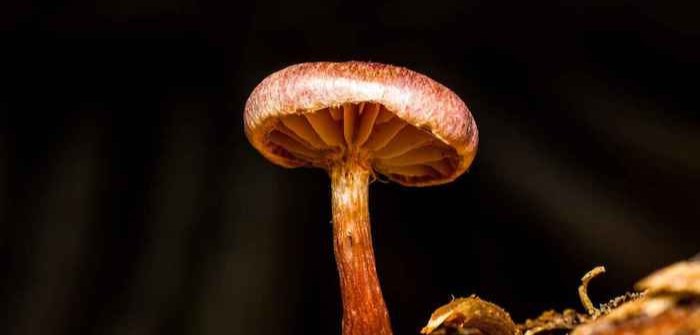Research shows some promising results as magic mushrooms are increasingly being used for possible therapeutic benefits.
With the growing need to treat mental health disorders, attitudes towards the use of psychedelic drugs are changing, says Andrew Hathaway, a professor in the department of sociology at the University of Guelph.
But Hathaway, who studies illicit drug use, harm reduction, human rights,and Canadian drug policy, says this does not mean that legalization is likely to happen in the near future.
“The extent to which there is growing use, as a form of medicine or treatment, we are seeing certain jurisdictions in the United States moving towards not necessarily legalizing, but decriminalizing mushrooms, perhaps making it a low priority offence,” Hathaway said.
“One of the other aspects of that approach is allowing use for research purposes which certainly does suggest that there is an increasing acknowledgement of some kind of mental health benefits.”
Hathaway says there isn’t strong, definitive evidence that would spur this to become a major movement in treatment, but people who are pursuing this kind of therapy are doing so because they haven’t had much success with typical conventional medicinal approaches.
Psilocybin is a naturally occurring psychedelic, the active ingredient found in magic mushrooms. There are more than 200 different species, and according to Health Canada, magic mushrooms have been used for thousands of years and for treatment of anxiety, depression, obsessive-compulsive disorder and substance use.
“Much like cannabis and other controversial medicines, I think doctors and psychiatrists would be wary of suggesting that altering consciousness has particular mental health benefits. But the people who do benefit from psilocybin describe it more as a kind of spiritual kind of therapy. And these other forms of alternative and complementary medicine, it does fit with a growing movement of people who are dissatisfied with more conventional forms of the medication,” Hathaway said.
“The comparison between cannabis and magic mushrooms, I think it’s reasonable to say that there are certain parallels and interest in its use as a form of medicine.”
Magic mushrooms are legal in half a dozen countries.
In Canada, psilocybin is a schedule III drug regulated under the Controlled Drugs and Substances Act and is illegal to sell and possess.
It is legal in some countries and decriminalized in a a few U.S. states, meaning it’s not legal, but the possession and cultivation of the drug is not prosecuted and sales are not regulated.
Since July, Australia has moved to recognize the medicinal qualities of psilocybin medicines that can now can be prescribed by authorized psychiatrists to people experiencing treatment-resistant depression.
Hathaway says it is because there is clearly a market for these products. Despite psilocybin being illegal in Canada, mushroom dispensaries have popped up across the country.
But recent raids by police on mushroom dispensaries in cities, including Windsor and Brantford, raises the question of whether this is a move towards legalization.
Hathaway says this could be a sign the government is somehow making it a priority to clean up the illicit market so that it can become involved.
“I haven’t heard any formal announcements to that effect, but that was what happened in advance to the legalization of cannabis. You started to see a lot of these dispensaries being raided. There were 80 in the city of Hamilton alone, for example,” Hathaway said.
“The reasoning behind that, was that it was seen as a threat to the profitability of the legal industry.”
Hathaway says that explanation doesn’t really make sense for magic mushrooms unless the government has a clear agenda towards getting into the business of licencing and distributing them.
“One thing to bear in mind is it’s a lot smaller market than cannabis. So, this is where the parallels break down,” he said.
And then it becomes a question of legalization for medical purposes only.
“This is what happened originally with cannabis in 2000. It wasn’t until much later in 2018, that it was legalized for recreational use. So, that opens up the question, what kind of distribution model would there be for magic mushrooms? If it’s a medical model, maybe through a doctor’ prescription available at pharmacies, but so far, there is no indication of that. Or if it’s a recreational model, then the idea of having a mushroom store at every corner, again I don’t’ think there’s that same size of a market as with cannabis,” Hathaway said.
According to Hathaway, Canada has yet to indicate it plans to legalize psilocybin and get into the business of licensing distribution.
“With cannabis, we see a lot of these store fronts are shutting down now. It hasn’t turned out to be as profitable because it was a saturated market and so its not the green rush that it was anticipated to be. I would be surprised to think that the government would suit to try to get into the legalization and distribution for some of these reasons,” Hathaway said.
“And with magic mushrooms, it's a smaller market, so it is less profitable.”



